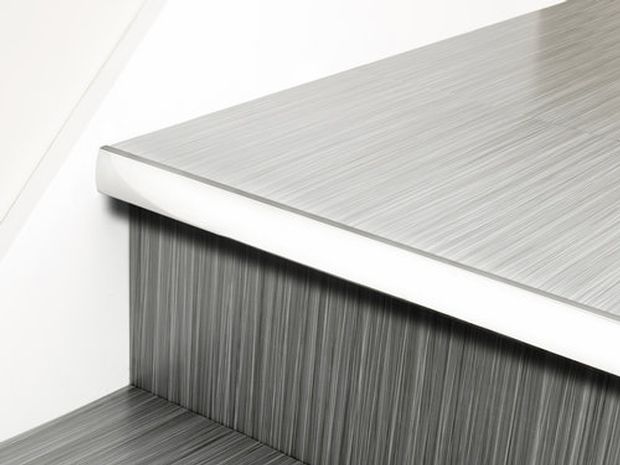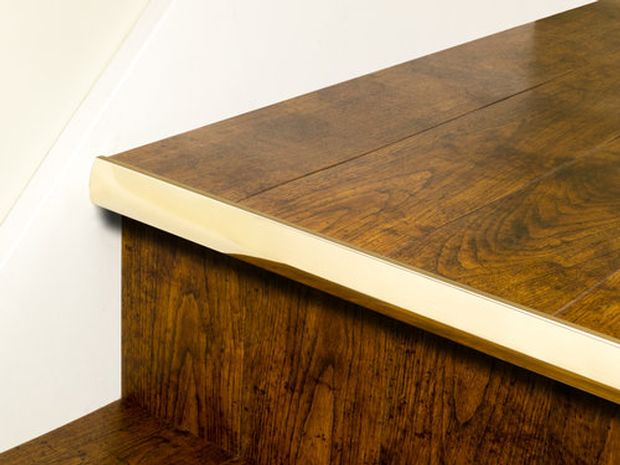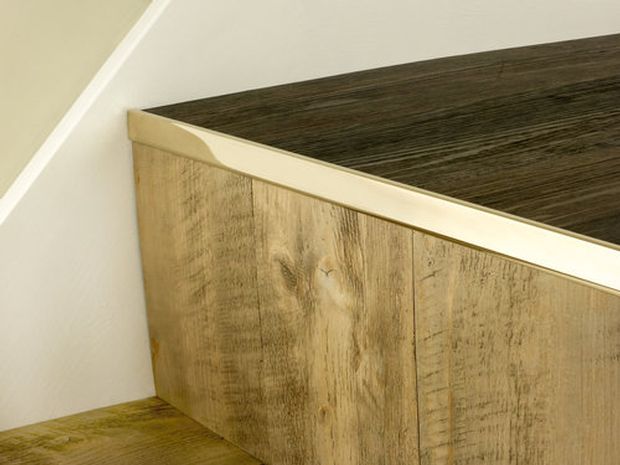What is the Most Resilient Stair Nosing Material?

Heavy-duty or resilient stair nosing is a type of floor covering most commonly used in commercial or industrial spaces – as well as anywhere that experiences a lot of foot traffic. As a result, robust stair nosings need to be made of heavy-duty materials like metals and plastics.
Some of the most common heavy-duty materials that are suitable as resilient stair nosing options include:
- Aluminium
- Brass
- Bronze
- Laminate
- Rubber
Many of these materials also have useful features beyond being heavy-duty, such as being slip-resistant, corrosion-resistant, or including special finishes and polishes to enhance their appearance. Here we will break down the most resilient stair nosings and where they work best.
As leading providers of a wide range of resilient stair nosing types, we understand the nature of the materials that help to make the strongest steps. Browse through our range of stair nosing and buy online with free UK delivery on orders over £75. You can also contact us if you have any questions.
A List of the Most Resilient or Heavy-Duty Stair Nosings

Each material on this list has its own unique properties, which may make them more or less desirable in certain situations. There is no ‘best’ option for a heavy-duty result, but many of them have a few features that work aesthetically or functionally in specific environments.
The following are the most resilient stair nosing materials, from the lowest strength to the highest:
5. Brass Stair Nosing
Brass is a nice, strong metal with a reddish appearance, so there are more decorative spaces that it might be suitable for, such as hospitality. You might see brass nosing on the steps up to a hotel entrance, in a restaurant, or even on cruise ships and yachts. Brass does require a bit of cleaning and maintenance, but this can be done with warm soapy water and a sponge.
Using brass tends to be more of an indoor option, especially in the home, but you may see it in use for outdoor staircases as it has corrosion and weather-resistant properties.
4. Bronze Stair Nosing
Bronze is very similar to brass in its strength, appearance, and corrosion resistance or weather resistance. As a soft metal, it is simple to mould the nosing into various shapes on the stairs while still having a low chance of denting or scratching. Bronze includes several finishes that can hone the appearance further, such as antique bronze, which is a bit darker and hides stains.
Bronze stair nosing is not the strongest option on our list, so it should be used in places with moderate foot traffic only. Many people use it in the home as it provides a decorative look.
3. Laminate Stair Nosing
Using laminate for your stair nosing will give you an ultra-resilient result at a phenomenally low cost, which is excellent for all sorts of commercial and industrial settings. You can use laminate nosing for areas with exceptionally high footfall, and it will also last a very long time under the most strenuous of conditions.
Laminates have a simple and stripped-down appearance, but you can get finishes such as wood grain to achieve a multitude of different looks. Laminate is best indoors as it can get slippery.
2. Rubber Stair Nosing
You are probably thinking that rubber is soft and malleable, which might make it seem like it is a bad choice for resilient stair nosing. However, it is this softness that makes it so strong and suitable for heavy-duty use. Rubber has the immense benefit of being able to absorb pressure from impacts, which is why it will rarely crack or damage. Rubber is naturally slip-resistant, too.
Rubber can degrade under sunlight, so it is best used indoors in places such as office buildings. It is also often seen in airports and other transport hubs.
1. Aluminium Stair Nosing
Aluminium is a cheap, lightweight material that can be used as a thin stair nosing material. It is also very strong, especially when it is fitted flush with a staircase. However, aluminium has a plain, austere appearance. Subcategories of aluminium nosing include anodised aluminium, which increases the level of oxide in the metal and therefore makes it less likely to corrode.
As a result, anodised aluminium is an excellent option for an outdoor staircase that is exposed to the elements, such as those of a train station. Aluminium nosing offers a robust, industrial design style.

What Are the Least Resilient Stair Nosings?
There are a few materials that are selected primarily for their looks and not for their resilience, such as:
- Chrome, which can easily chip off and become scratched
- Metal-plated nosing, which can scratch and reveal the surface underneath
- Pewter, which is quite a malleable metal that can dent quite easily
- Nickel, which is typically used as a soft coating for stronger metals
- Wood, which can crack, splinter and break even with light use
The above materials can still look excellent as stair nosing, so they can be superb options in the right environments and under the right conditions.
The Most Resilient Stair Nosings Explained
We hope that you appreciate the differences between the most resilient stair nosings and the least, which can each be suitable for different situations. Rubber and aluminium are the most resilient, while brass, bronze, and laminate have less resilience but are still quite heavy-duty.
Our wonderful company has been providing amazing floor accessories since 1997, so we realise the pros and cons of different materials. Feel free to browse our stair nosings and buy online, with free UK delivery on orders over £75, and contact us if you have a question about a product.


